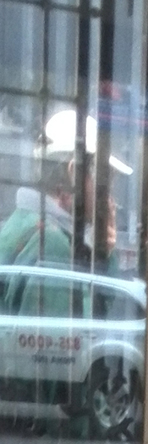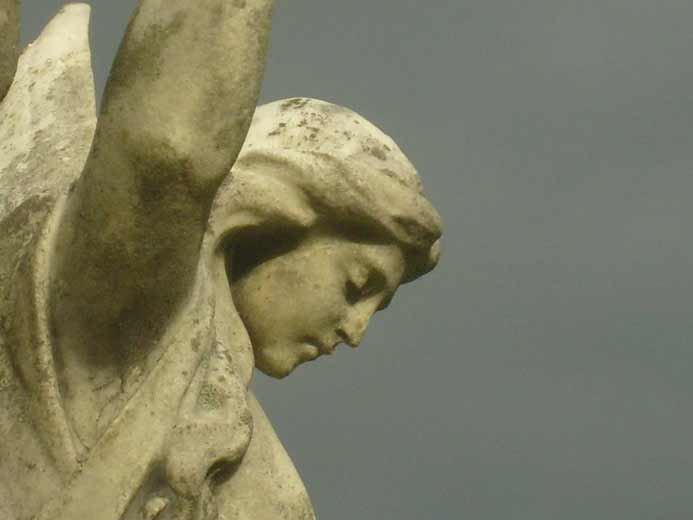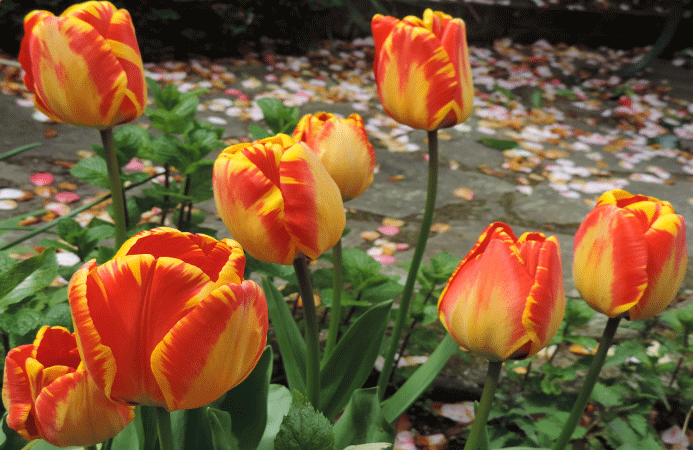| How wide is the gap between the people who make all the noise in society, and the people who don't appear on our screens at all? Wondered about this after the General Election. All the noise was about coalitions, etc.; the result was a clear victory/defeat. Today, there's so much noise, and it's all focused on junior doctors, schools as academies, the EU referendum. To express the question in electoral terms, will the eventual vote reflect the apparent consensus among the noise-makers, or will it (again) reveal the existence of a significant "silent majority" that has made up its mind on grounds distinct and different from the assumptions of the "chattering classes"? Given the market penetration of social media, the relentless dissemination of news and comment, there shouldn't (sic) be a silent majority in the old-time sense of that term. We are all members of what used to be calle the chattering classes - or we could be, if we wanted to take up the opportunity represented by online access. Maybe most of us just aren't listening. Maybe we are. These are, perhaps unfortunately, interesting times. |
|
0 Comments
Today's interesting book is The Penultimate Curiosity: How Science Swims In The Slipstream Of Ultimate Questions by Roger Wagner and Andrew Briggs (Oxford). Not that I've got further than the opening pages of Chapter One, but it's well written, the easiest of reads, and already worthwhile. It's promising from the outset in the way that Sapiens: A Brief History of Humankind (Yuval Noah Harari; Harper) was promising from the outset.
Found this in the Prologue. "For medieval thinkers ... religio referred to interior acts of devotion, while scientia was considered a habit of mind." The concept of 'religion', the authors tell us, hardly existed before the seventeenth century, and the word 'scientist' was first used in the nineteenth. The opposition between religion and science is a recent invention. An individual could contain religio, so to speak, while looking out at the world with scientia. This makes sense to me. The notion that "there's more" fits with both science and spiritual belief (widening this out from 'religion', which seems to me a restrictive term) and is probably necessary to both. If 'religion' is signing up to the letter of a man-made doctrine, and 'science' dictates that there is nothing beyond the observable/verifiable, then they're both expressions of the same human impulse towards restriction, control, domination, fear of the unknown, closing the eyes. And the answer to both is: yes, but what if there's more? Scientific enquiry, my logic suggests, rests on the assumption that we could know more; that there is more to be known - and a scientist will thus tend to be open-minded as well as curious. People who say "I believe that there's more", or any such phrase, in the context of a conversation about religion, don't seem to make it a condition of their belief that the "more" reveals itself. Both scientists and spiritual believers are open to the possibility that we don't know the whole story. For me, the distinction between the two is: scientists are concerned with the engine; spiritual types look towards the driver. Maybe there is more beyond the senses we have. Maybe our senses aren't such a convenient match with everything that could be sensed. I wonder. Here's a poem by the US poet Maya Stein. Posted here to celebrate today's view from my kitchen window.
Tulips How much, some days, you just want to bury your head under the duvet, that great, billowy cloud of total, beautiful anonymity. Imagining you could take breakfast there, and the pile of mail to go through, your backlog of magazines. Inches away, on their last morning, the tulips are waking up to the very edge of themselves, unwrapping their petals shamelessly against the sun, bending towards the light in great, voluptuous bursts of orange. We've lost our idealism, haven't we? Today, the Junior Doctors go on strike for nine hours. Tomorrow, they're intending to do the same again. Their strikes will include, for the first time in the history of the NHS, the withdrawal of emergency care. The dispute is about the terms of a new employment contract that is now being imposed by the government. I haven't read the contract and I've only followed the dispute in headlines, invitations to sign online petitions and social-media arguments, so I should try to remember that I don't have a well-founded view on who's right and who's wrong.
Once, I lived in a civilisation where the idealism required of a doctor was taken for granted. Doctors went beyond the call of duty (for want of a better phrase), made home visits, worked weekends, didn't get paid much, and that was taken to be part of the job. They became doctors because they wanted to be doctors; there was an oath involved. I guess the same is true of today's Junior Doctors, but what's pushed me into this idealised remembrance of doctors past is the proposed withdrawal of emergency care. Surely not. How could any doctor - ? Questions like that. A petition came around yesterday, asking me how I'd feel if my elderly relative was in A&E and the Health Secretary still wouldn't yield. I don't know how I'd feel about the Health Secretary in that situation, and I'm still not sufficiently informed about the dispute to take a view of the politics, but I really can't believe that a real doctor would stay on the picket line while my bleeding, groaning, agonised elderly relative (cue music) was wheeled past on a stretcher. A person who could do that wouldn't be a doctor, whatever their qualifications. Idealism is always personal. To be a doctor is a thing of the heart. To be a teacher, lifeguard, police officer, nurse, vet, paramedic, carer, Samaritan, volunteer is the same. It's a weakness: you do it because it has to be done and you "heard the call". That doesn't mean: back down because you're an idealist and people need you and you can't stop yourself backing down. Although that may be what will happen. The real failure of the way we do politics is that it separates idealists from their ideals. I know what I think of politicians. I hate the way that they're bringing doctors down to their level. This must be so painful for the doctors. Found in Andrea Wulf's review of Steve Jones's book No Need for Geniuses. There was once an opponent of the death penalty who proposed a painless method of execution. His name was Joseph-Ignace Guillotin. For me, that pretty much defines the unintended consequence.
Wulf's review, entitled Let them eat potatoes, appears in the Life & Arts section of the Weekend FT, 2/3 April 2016, The full title of Jones' book is No Need for Geniuses: Revolutionary Science in the Age of the Guillotine. And a neat detail of the story (quoting from the review) is that Joseph-Ignace's family "changed their surname in protest when thousands were executed by guillotine". Perhaps the secret wisdom of our later years is just this: that even beliefs change. There are so many exhausting certainties these days, and so few of them lead to harmony. We could open up to each other, by the grace of the internet and its capacity to render permanent every passing indiscretion, and yet we choose to hold each other to account. Even to attack - out of fear? Fear of the image in the mirror?
Microsoft took down Tay because it - she? he? - was too effective at learning. Tay channelled us back to us. But I wonder what kind of artificial saint we could build, if we controlled the release of Tay 2. Maybe delayed input, or moderated input? All our good thoughts only. No, wait. Terry Pratchett got there first. Was it Feet of Clay in which the clay people attempt to build their perfect artificial descendant? |
Dear Diary: The Archive
April 2024
|




